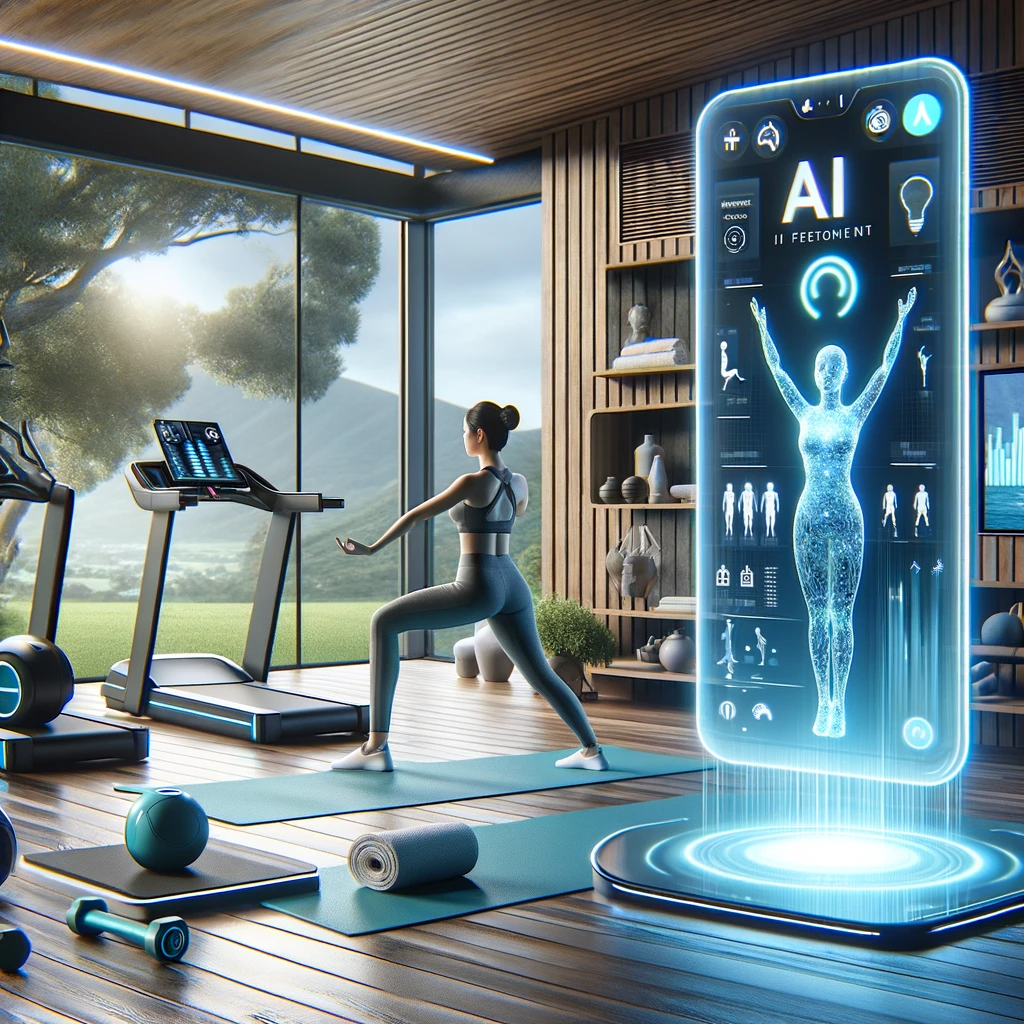In a world where health and wellness are increasingly becoming a priority, technology, especially Artificial Intelligence (AI), is playing a pivotal role in transforming the fitness industry. Gone are the days of one-size-fits-all fitness routines and generic health advice. Today, the focus is on personalization, with AI leading the charge in crafting fitness and wellness programs that cater to the unique needs, preferences, and health data of each individual. This technological revolution is redefining what it means to be fit and healthy, making wellness more accessible, engaging, and effective than ever before.
This article aims to explore the burgeoning potential of AI in personalizing fitness and wellness regimes. It will delve into how AI, with its advanced data analytics and machine learning capabilities, is creating tailored exercise routines, dietary plans, and overall wellness strategies that align closely with individual health profiles and lifestyle choices. By investigating various AI-driven fitness and wellness applications, we will uncover the depths to which AI can enhance our pursuit of health and well-being. However, as we navigate this promising landscape, we also confront the challenges and ethical considerations that come with such personalized technology. Join us in this exploration of AI’s role in shaping the future of personalized fitness and wellness programs, where technology meets the personal touch in the quest for optimal health.
The Rise of AI in Fitness and Wellness
The integration of technology into fitness and wellness has been a gradual but transformative process, with AI marking the latest and perhaps most revolutionary step. This section will trace the historical evolution of technology in this field, culminating in the current use of AI. It will provide an overview of how AI technologies, such as wearable devices and mobile health apps, are currently employed to track and analyze individual health data.

The focus here will be on how AI algorithms process personal data, including physical activity, dietary habits, sleep patterns, and even genetic information, to offer customized health and fitness advice. The section will explore the range of AI applications in fitness and wellness, from simple activity trackers to more complex systems that can design holistic fitness routines and dietary plans tailored to individual goals and constraints.
Personalization of Fitness Programs Through AI
Personalization is at the heart of AI’s appeal in fitness and wellness. This section will delve into the specifics of how AI customizes fitness programs. By examining the mechanisms through which AI adjusts workouts based on individual performance, progress, and feedback, the discussion will highlight the personalized nature of these programs.
Real-world examples and case studies will be used to illustrate the effectiveness of AI-personalized fitness routines. These examples will demonstrate how AI-driven programs can adapt to changes in an individual’s fitness levels, preferences, and even daily energy levels, offering a more dynamic and responsive fitness experience compared to traditional, static programs.
AI in Wellness and Health Monitoring
Beyond physical fitness, AI’s role in broader aspects of wellness, including mental health, sleep quality, and nutrition, is rapidly expanding. This section will explore the various ways AI is employed in monitoring and advising on these aspects of health. It will discuss AI’s potential in predicting and preventing health issues based on the analysis of personal health data, signaling a shift from reactive to proactive health management.
Examples of popular AI-driven wellness apps and platforms will be provided to illustrate how AI offers holistic health insights and personalized recommendations. This will include a discussion on AI’s role in mental health, such as mood tracking and stress management, showcasing the comprehensive nature of AI in wellness.
Challenges and Ethical Considerations
Implementing AI in personal fitness and wellness is not without its challenges. This section will address key concerns such as data privacy, the accuracy of AI recommendations, and the risk of data breaches. Moreover, the ethical considerations surrounding AI in fitness and wellness, such as the potential reinforcement of unhealthy body standards or biases in AI algorithms, will be critically examined.
The discussion will extend to how the industry can navigate these challenges, ensuring the responsible and ethical use of AI. This includes establishing robust data security protocols, ensuring transparency in AI operations, and promoting inclusive and diverse AI models that cater to all body types and fitness levels.

Conclusion
In conclusion, the article will recap the transformative potential of AI in personalizing fitness and wellness programs, highlighting the key insights and findings. It will reflect on the future trajectory of AI in this field, considering the ongoing advancements in technology. The concluding thoughts will focus on finding the right balance between harnessing the benefits of AI for personal health and fitness while maintaining ethical standards and protecting individual privacy. The future of personalized fitness and wellness, as shaped by AI, promises not only more effective and engaging health regimes but also poses important questions about the role of technology in our personal health journeys.
